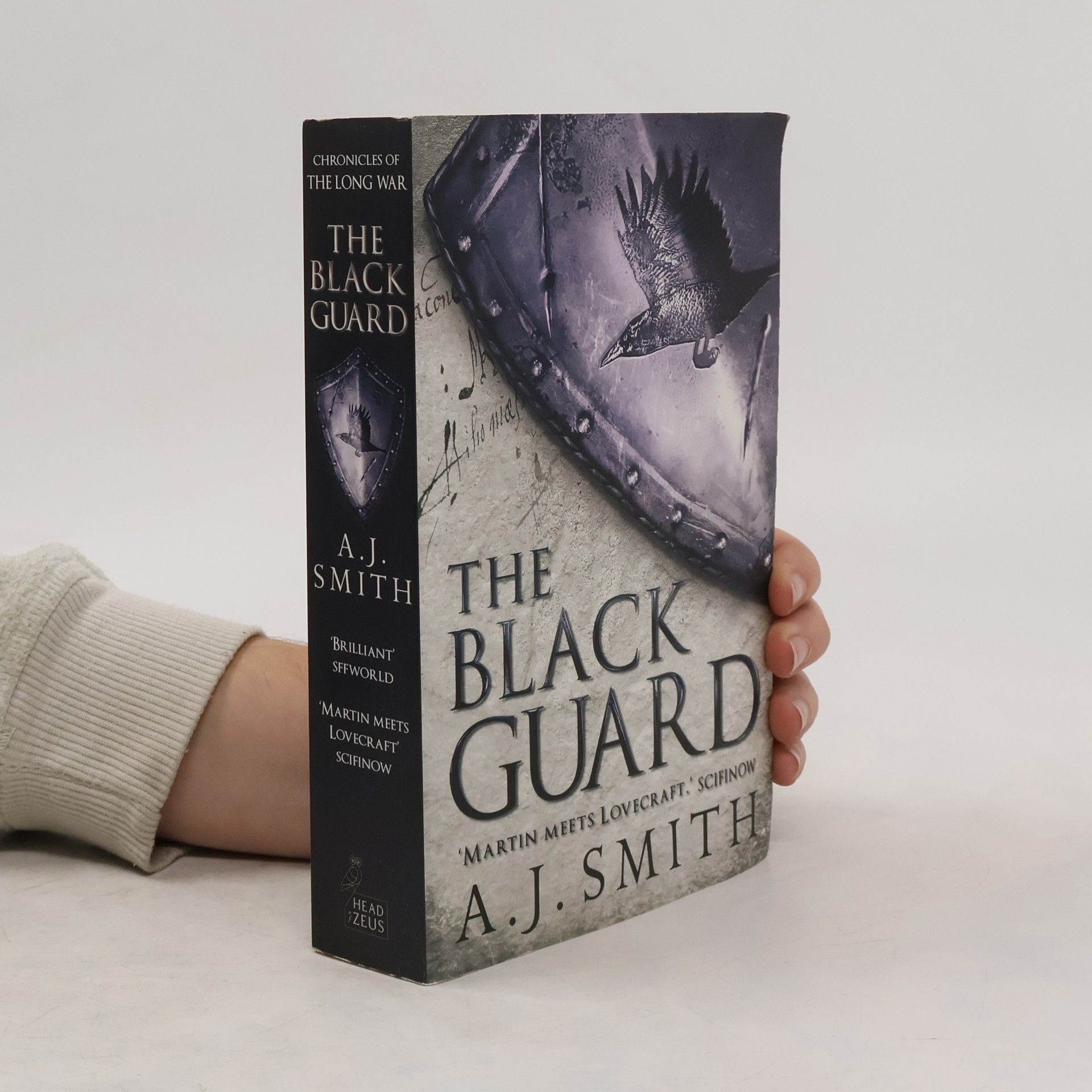A. J. Smith Poradie kníh (chronologicky)
Táto autorka píše fantasy príbehy, ktoré ju napĺňajú a dávajú jej pocit zmysluplnosti. Vo svojich dielach sa často zaoberá témami, ktoré sú pre ňu osobne dôležité, a nachádza v písaní jedinú činnosť, ktorá ju celkom pohltí. Jej tvorba je známa svojím originálnym prístupom a hlbokým vhľadom do fantasy žánru. Medzi jej mnohé záujmy patrí aj zbieranie figúrok goblinov.






The Sea Rises
- 455 stránok
- 16 hodin čítania
The epic conclusion to the Form & Void trilogy. Ages end and the sea rises. As the sea rises, so too does the old world.
Tea Time for Dinosaurs
- 56 stránok
- 2 hodiny čítania
A very funny and easy-to-read story about how being a REAL dinosaur means just being yourself!Tyra has a tutu. Tops plays the trumpet. They're not like other dinosaurs. Most dinosaurs like to rage and roar. But Tyra and Tops think raging and roaring is, well, boring! They'd rather have a tea party instead, and the other dinosaurs are invited! It doesn't go so well at first, but by the time the broken teacups are cleaned up, everyone realizes that there's no right or wrong way to be a dinosaur.A hilarious story that's perfect for dinosaur lovers, new readers, and fans of Mo Willems.
The Sword Falls
- 512 stránok
- 18 hodin čítania
Prince Oliver Dawn Claw, heir to the Kingdom of the Four Claws, is thrust into a world he doesn't understand as he waits for his father to die. Meanwhile, Adeline Brand refuses to wait, and enters a fight she doesn't know if she can win.
Work Want Work
- 192 stránok
- 7 hodin čítania
Work Want Work considers in captivating detail how a logic of work has become integral to everything we do, even as the place of formal work has become increasingly precarious. With reference to sociological data, philosophy, political theory, legislation, the testimonies of workers and an eclectic mix of cultural texts – from Lucian Freud to Google, Anthony Giddens to selfies, Jean-Luc Nancy to Amy Winehouse – Pfannebecker and Smith lay out how the capitalism of globalized technologies has put our time, our subjectivities, our experiences and our desires to work in unprecedented ways. As every part of life is colonized by work without securing our livelihoods, new questions need to be asked: whether a nostalgia for work can save us, how ideas of work change conceptions of political community, how employment and unemployment alike have become malemployment, and whether the work of our desire online can be disentangled from capitalist exploitation. The biggest question, at a time when the end of work and a fully automated future are proclaimed by Silicon Valley idealists as well as by social democratic politicians and left-wing theorists, is this: how can we propose a post-work society and culture that we will actually want?
The Glass Breaks
- 512 stránok
- 18 hodin čítania
It is the 167th year of the Dark Age. Wielding their power, the Sea Wolves conquered the native Pure Ones and established their own Kingdom - but 17-year-old Duncan will discover a conspiracy to end their dominion...
The Dark Blood
- 486 stránok
- 18 hodin čítania
In the court of every city in the lands of Ro, an enchantress sits. And in the minds of their citizenry each encantress weaves a song. They sing of a precious new race, and a world united under a single blood creed. No one sings of the murder of young Prince Christophe; the rebellion of Canarn; of blighted gods stirring from their endless slumber; nor the lonely quest of a father to avenge the children stolen from him. And all would do well to remember that every song, as every life, must come to an end..
The Black Guard
- 608 stránok
- 22 hodin čítania
The city of Ro Canarn burns. With their father’s blood fresh upon the headsman’s sword, Lord Bromvy and Lady Bronwyn, the last scions of the house of Canarn, face fugitive exile or death. In the court of Ro Tiris, men fear to speak their minds. The Army of the Red marches upon the North. Strange accidents befall those who dare question the King’s new advisors. Those foolish enough to speak their names call them the Seven Sisters: witches of the fire god; each as beautiful and as dangerous as a flame. And, called from the long ages of deep time by war and sacrifice, the children of a dead god are waking with a pitiless cry—All that was dead will rise. All that now lives will fall…
